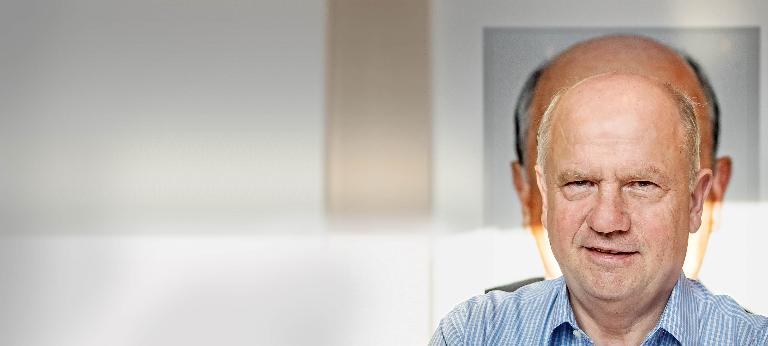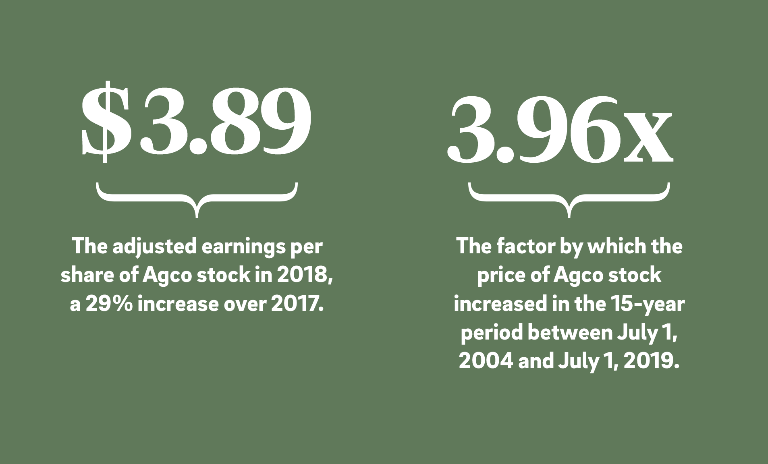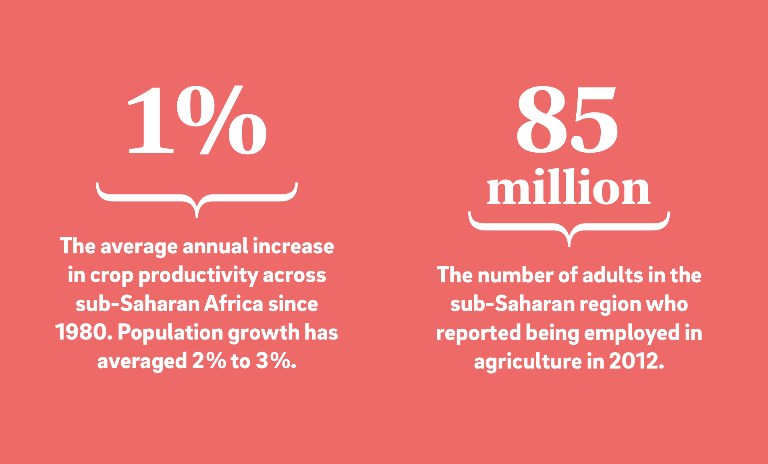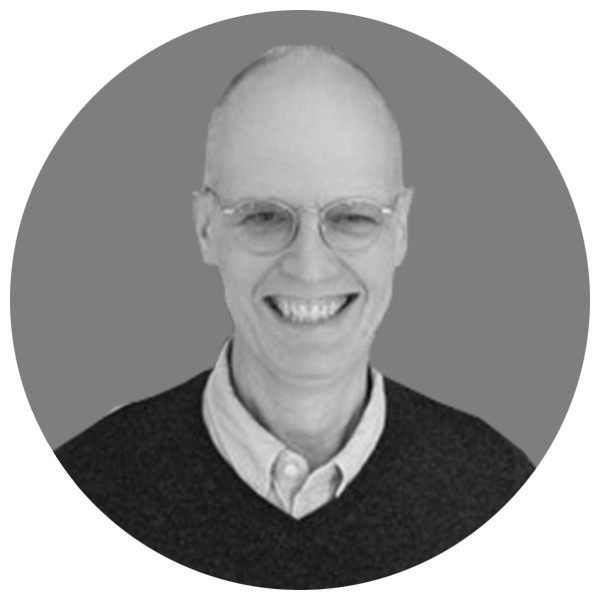How evolution drives success in the digital era
![{[downloads[language].preview]}](https://www.rolandberger.com/publications/publication_image/Think_Act_Magazine_Darwinism_Cover_EN_download_preview.jpg)
Change. Survive. Thrive. What your company needs to know to prosper in the digital age.



When it comes to growing a Fortune 500 company, Martin Richenhagen knows success is all about taking the right steps. The Agco CEO speaks to Think:Act about keeping things in perspective and why his interest in horses has shaped how he looks at business.
The key to successful horse training is giving the animal the right-sized lesson, according to Martin Richenhagen, CEO of Agco, the world's third-largest maker of agricultural machinery. He also happens to be a serious amateur horseman. "When you ask too much from the horse, you will see that the horse will show a lot of resistance and will not work with you anymore, but when you don't challenge the horse at all, you will see that the horse gets lazy and learns nothing," explains the Duluth, Georgia-based executive.
The same principle holds true for others in his life. "I always say whether you train horses, dogs, your children or your employees, there are a lot of similarities," says Richenhagen. Of course, there will always be the occasional hard cases. A member of the President's Advisory Council on Doing Business in Africa since 2010 who was asked to stay on in the Trump Administration, Richenhagen quit abruptly in March 2018 after Rex Tillerson resigned as US Secretary of State. After the former EptonMobil chief departed, it became clear to Richenhagen that his advice on the advantages of free trade would not be heard. "There's no point in getting involved there," he told reporters. A year later, he has not changed his mind: "We do not like tariffs and so that of course means that we don't like a lot of things which are done right now here in the United States. We try to explain to people why this is the case, and some people understand. But that doesn't mean that you can successfully change things. Right now the American administration just doesn't listen to business."
To defend his firm against Trump and the other similarly uncoachable populists around the world, Richenhagen is focusing less on politics than improving the performance of those aspects of business over which he has more control, such as sales, operational efficiency, and innovation. "It doesn't help you if you are excited or emotional about all those political things. You just need to make sure that you try to handle it," explains Richenhagen, whose firm does business in over 140 countries.
"I think every manager should do something that helps him to get away from his daily job."
The Trump experience turned out to be somewhat unusual for Richenhagen, who has had a long, successful career coaching both two- and four-legged pupils. After five years as a high school theology teacher in Cologne, Germany in the early 1980s, the Cologne native rose through a succession of international business jobs to CEO of Agco in 2004, a
global agricultural equipment
conglomerate whose brands now include Fendt, Valtra and Massey Ferguson.
Ranked as one of the most-admired Fortune 500 CEOs by other Fortune 500 CEOs, Richenhagen has grown Agco from a company that generated about $5.3 billion in sales annually to $9.4 billion. Over the past 15 years, the stock has climbed from around $20 to over $70 a share, earnings have grown from $1.75 per share to $3.89 per share, and the number of employees has more than doubled, growing to over 21,000 worldwide.
Through all this business success, though, Richenhagen has stuck by his horses. A specialist in dressage, a complex and subtle equestrian event in which horse and rider perform a series of pre-choreographed movements from memory, Richenhagen has judged dozens of international competitions and even served as coach of the German equestrian team for the Beijing Summer Olympics in 2008, bringing back a team gold medal and individual silver and bronze medals.
It isn't just a hobby, though. Most importantly, Richenhagen finds the time he spends with his horses interesting, relaxing and occasionally even a source of inspiration. "I think every manager should do something that helps him to get away from his daily job. I think it makes you a better leader and also helps you to be more creative." And indeed, some of the ideas he is most excited about realizing first came to him when he was out riding. "The idea of developing an electric tractor came into my mind when I was at a horse farm because inside the buildings on farms you don't want to have noise and you don't want to have emissions," Richenhagen explains. That electric tractor should soon be shifting from an idea into a reality. "We have our prototype now and this year we will produce 30 of these and then we will hopefully go to market next year," he adds.

Another idea – smaller and unmanned farm vehicles that could operate in swarms – occurred to him after he noticed the popularity of small vehicles on farms. The new driverless tractor "is a small piece of equipment, which right now we have focused on the planting of soybeans," he explains. "And that's a new idea: Instead of getting bigger, and bigger and bigger, you get smaller and then you can work in swarms. Instead of having one big tractor in the field, you might have maybe five or 10 or 20 small ones."
Besides being able to operate 24/7 and not having to find tractor operators to run them, the swarms will be able to scale to the particular needs of the farm. "On a small farm, you might be fine with maybe three or four of those. On a big farm, you might want 20. We believe that this certainly will be a trend in the future. We are just at the beginning of this," he says.
Horse events are also good for networking. "I met Jeff Bezos at a horse show a few years ago," he confides, and then goes on to explain what he learned from this chance meeting. "He told me that they don't do PowerPoint presentations anymore at Amazon because they're so boring. Since then, only the CFO uses PowerPoint. Everybody else reads all the other presentations before the meeting, so instead of people leading us through the presentations in the meeting, we just discuss the ideas. It's far more efficient."

It isn't the only bit of advice that he's picked up away from his desk. "When you have a life outside your company, you learn things, hear things," he explains. "One idea which I heard from somebody was reverse mentoring. Instead of just having all our leaders mentor younger people in the organization, the idea is to reverse it so you have one of the very, very young people in the company teach you something about a new idea. And we're doing that now – I just had my second session on social media, for instance. So that's another idea I picked up on a horse." In fact, Richenhagen owes his whole business career to horses: It was while moonlighting as the manager of a dressage barn during his teaching years that a client, a fellow horse enthusiast who ran a steel company, invited him to join his firm's executive training program.
Although not every idea occurred to him while out on horseback, he does seem to pursue each one with the same deliberateness with which he approaches his dressage training, as a series of "right-sized lessons." His interest in Africa began with a question about 10 years ago: "Because we are so global, I began asking, do we really cover all the markets of the world? And it came into my mind that we don't do very much business in Africa, so I hired a special assistant, an African, who helped me learn and understand Africa." He discovered that Africa has the world's largest reserve of unfarmed but potentially arable land, and yet
sustainable production
remains a major challenge. "The farming is mainly done by women because men don't want to do that hard work," he says, "and Africa is completely undermechanized."
Tractors could change that. "As soon as you mechanize your farm, you can normally produce 10 to 20 times as much as you can do manually," he explains. "And the farms are very small, so that means a tractor ... can be used for a village, not only for one farm." Next, he built a factory in Algeria where they assemble and build small tractors for farmers on the continent, and then a demonstration farm of over 350 acres in Zambia, a school that trains farmers, equipment dealers, university students and teachers.
The firm has also endowed a foundation, the Agco Agriculture Foundation, which is now offering a certified course, supported by Strathmore Business School in Nairobi and Harper Adams University in the UK, to teach a two-year course in agribusiness. "This year, the first 20 students graduate and the great news is they all will have a job at Agco," Richenhagen says proudly.
Appointed CEO of Agco Corporation in 2004, Martin Richenhagen has over the last 15 years nearly doubled annual sales, deepened the company's relationship with its African markets and endowed the Agco Agriculture foundation. German-born, he has held US citizenship since 2011 and served on the US President's Advisory Council on Doing Business in Africa from 2010 until 2018.
Now, Agco has taken that experience and designed a tractor that meets the particular needs of African farmers. The tractor has an engine simple enough that the farmer can service it himself; it includes a plow, seeding and tilling equipment and comes with its own container, a small barn that makes it possible to protect the tractor from theft. Inside the container, the farmer will find a small office and a computer, which he can run either with solar power or a generator. "It's a great solution for those markets," he says.
All of this will sell for about $20,000, he says, which should make it affordable, particularly once the company launches its financing partnership with Rabobank, the Dutch farmers' banking cooperative. And, he says, may even prevent future refugee crises. "People like to stay where they are when they like their environment – there isn't a big difference between people and horses. Why do people leave their homes? One reason is safety. Two is enough quality food. Three is education. Four is a place to live. And then a job. If you can provide this, I think you also have found a solution for the refugee problem," he says.
Despite the social benefits he sees in Agco's African initiative, Richenhagen insists that he sees the organization's dealings not as philanthropy, but rather as good business. "I'm not the Red Cross or a charity organization – we are here to make money for our shareholders. We're already profitable in Africa; our Africa business is growing very rapidly – we have doubled our sales in Africa every year for the last five years," he explains. "We make money, which is good for our shareholders; we generate solutions for individual farmers, which is good for our customers; and we help the countries to develop," Richenhagen adds. "It's the perfect win-win situation."
But all rides have to come to an end – even the really good ones. And for Richenhagen, now 67, the end of the course is starting to come into sight. His retirement date is not yet set, but when he does step down, he says that he plans to spend more time serving on a few corporate boards, the Johns Hopkins German-American studies program in Washington DC, and maybe teach business in Africa. And, of course, spend a little more time with his horses.


![{[downloads[language].preview]}](https://www.rolandberger.com/publications/publication_image/Think_Act_Magazine_Darwinism_Cover_EN_download_preview.jpg)
Change. Survive. Thrive. What your company needs to know to prosper in the digital age.
Curious about the contents of our newest Think:Act magazine? Receive your very own copy by signing up now! Subscribe here to receive our Think:Act magazine and the latest news from Roland Berger.
